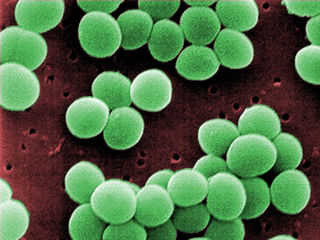Play
Does ALS Start in the Gut?
New research shows that gut microbes may play a major role in ALS.
Posted July 22, 2019 Reviewed by Devon Frye
In 2014, the Amyotrophic Lateral Sclerosis (ALS) Association scored a big hit with its "ice bucket challenge," which saw celebrities around the world cheerfully enduring a freezing dunk to help publicize ALS. It was a surprisingly viral way to raise awareness of this horrible, challenging disease, but the causes of ALS are still speculative, and treatments are sadly rare. There is, currently, no cure.
In ALS, the neurons that control muscles start to die off, one by one. The people afflicted progressively lose their ability to move, to speak, to eat, and finally, to breathe. It happens quickly: The survival rate after diagnosis is rarely longer than five years. It is the disease that took the life of baseball legend Lou Gehrig and, ultimately, famous cosmologist Stephen Hawking. ALS contracted early seems to progress more slowly, as was the case for Hawking, but no one knows why.
Genetics seems to be involved with some 10 percent of cases—so-called familial ALS—but most ALS comes like a bolt from the blue. One of the genes related to ALS provides the code for enzymes that break down reactive oxygen species—products of metabolism that can harm surrounding tissue.
Another genetic mutation not only brings on ALS, but also frontotemporal dementia (FTD). This linkage makes it likely that ALS and FTD are related disorders affecting the nervous system and also the psyche. Emotional overload is a symptom of ALS, with occasional outbreaks of uncontrollable crying—and sometimes laughing. Depression is also commonly associated with ALS, as it is with many neurodegenerative diseases like Alzheimer's, Parkinson's, and multiple sclerosis.
These diseases are all associated with systemic and central nervous system inflammation—and the ultimate cause is often gut "dysbiosis" and a "leaky gut," phrases that are more evocative than scientific. If the gut is leaky enough to let bacteria (or their toxins) into the bloodstream, the heart will dutifully pump them to every organ in the body. That includes the nervous system.
The brain is a delicate organ that acts like a gated community, keeping the riffraff out with the blood-brain barrier. However, just like the leak-prone gut, this biological barrier is vulnerable, especially to inflammation. For the ALS vectors to reach the brain and spinal cord, they may depend on a leaky blood-brain barrier. That's one theory, anyway. This is a field with many hypotheticals, but few good answers.
A Mouse with ALS
That's why there is much excitement about a study using a mouse model of ALS. These experimental mice have one of the same mutations found in familial ALS: an inactive gene for superoxide dismutase (SOD).
SOD is an antioxidant that helps to mop up excess oxygen radicals produced by cellular metabolism. Without SOD, excess oxygen can induce mutations and potentially destroy cells. Levels of SOD decrease with age, helping to explain why older people are more likely to succumb to oxidative stress, contributing to diseases like Alzheimer's, arthritis, diabetes, and ALS.[1]
A mouse lacking that gene, the SOD1 knock-out mouse, exhibits ALS symptoms. This new study by Eran Elinov, Eran Segal, Marc Gotkine, and colleagues at the Weizmann Institute of Science in Israel shows that the gut microbiota seems to play a role—both good and bad—in the progress of the disease in these mice.[2] It is the first study to connect ALS to the gut microbiota.

The researchers identified several species of gut bacteria that were associated with disease severity and shortened lifetimes. As well as these "bad" microbes, they also found a particular species, Akkermansia muciniphila, which could significantly and substantially prolong survival and improve ALS symptoms. Akkermansia produces the metabolite nicotinamide, which they showed has therapeutic qualities in ALS mice.
The discovery that Akkermansia contributes to the health of ALS mice makes it a probiotic. And since ALS is a nerve disease that often involves mental issues, that may also make it a psychobiotic—a term coined by Ted Dinan, John Cryan and Catherine Stanton in 2013 to refer to a probiotic that produces a health benefit in patients suffering from psychiatric illness.[3]
Segal says, "In the mouse model, we found the microbiome to have a causal role in the disease, which we showed both by the administration of Akkermansia as well as by the administration of key metabolites that we found to be depleted in the mouse model."
Akkermansia may not be the only player. Elinav says, "There are probably other species of commensals and other metabolites contributing to amelioration and exacerbation of disease." Nicotinamide by itself didn't improve symptoms as well as Akkermansia, perhaps because the dosing they used was insufficient or because Akkermansia brings other metabolites to the table as well.
Human Research
The researchers did some preliminary analysis of human fecal matter, determining that Akkermansia and nicotinamide also play a role in the progression of human ALS, an exciting discovery. They found that ALS patients, compared with healthy family members as controls, had significant reductions in genes that participate in nicotinamide metabolism. Several of these genes are found in Akkermansia, suggesting that this probiotic might help by replacing the missing gene products.
Elinav says, "We were not powered enough to go into genetic variants in this preliminary human study, but this would be important and interesting to [investigate] in larger follow-up human trials." But—as if to reinforce the complexity of the situation—where this study shows that Akkermansia is beneficial for ALS, some studies show that the same bacteria may aggravate Parkinson's disease.[4] Elinav says, "We strongly stress not to over-interpret our findings at this stage into any form of do-it-yourself supplemental treatment—these may be dangerous."
That humility and candor is the mark of a good scientist. Nevertheless, this is a ground-breaking study that complements other research showing a connection between gut microbiota and neurological diseases like Alzheimer's, MS, and Parkinson's. All of these intractable diseases are due for a breakthrough, and studies like this are leading the way.
LinkedIn Image Credit: Manjurul Haque/Shutterstock
References
[1] Younus, H. “Therapeutic Potentials of Superoxide Dismutase.” International Journal of Health Sciences 12, no. 3 (2018): 88–93.
[2] Blacher, Eran, Stavros Bashiardes, Hagit Shapiro, Daphna Rothschild, Uria Mor, Mally Dori-Bachash, Christian Kleimeyer, et al. “Potential Roles of Gut Microbiome and Metabolites in Modulating ALS in Mice.” Nature, July 22, 2019, 1.
[3] Dinan, Timothy G., Catherine Stanton, and John F. Cryan. “Psychobiotics: A Novel Class of Psychotropic.” Biological Psychiatry 74, no. 10 (November 15, 2013): 720–26.
[4] Li, Chunxiao, Li Cui, Yimin Yang, Jing Miao, Xiuzhen Zhao, Jingdian Zhang, Guohong Cui, and Ying Zhang. “Gut Microbiota Differs Between Parkinson’s Disease Patients and Healthy Controls in Northeast China.” Frontiers in Molecular Neuroscience 12 (2019).




